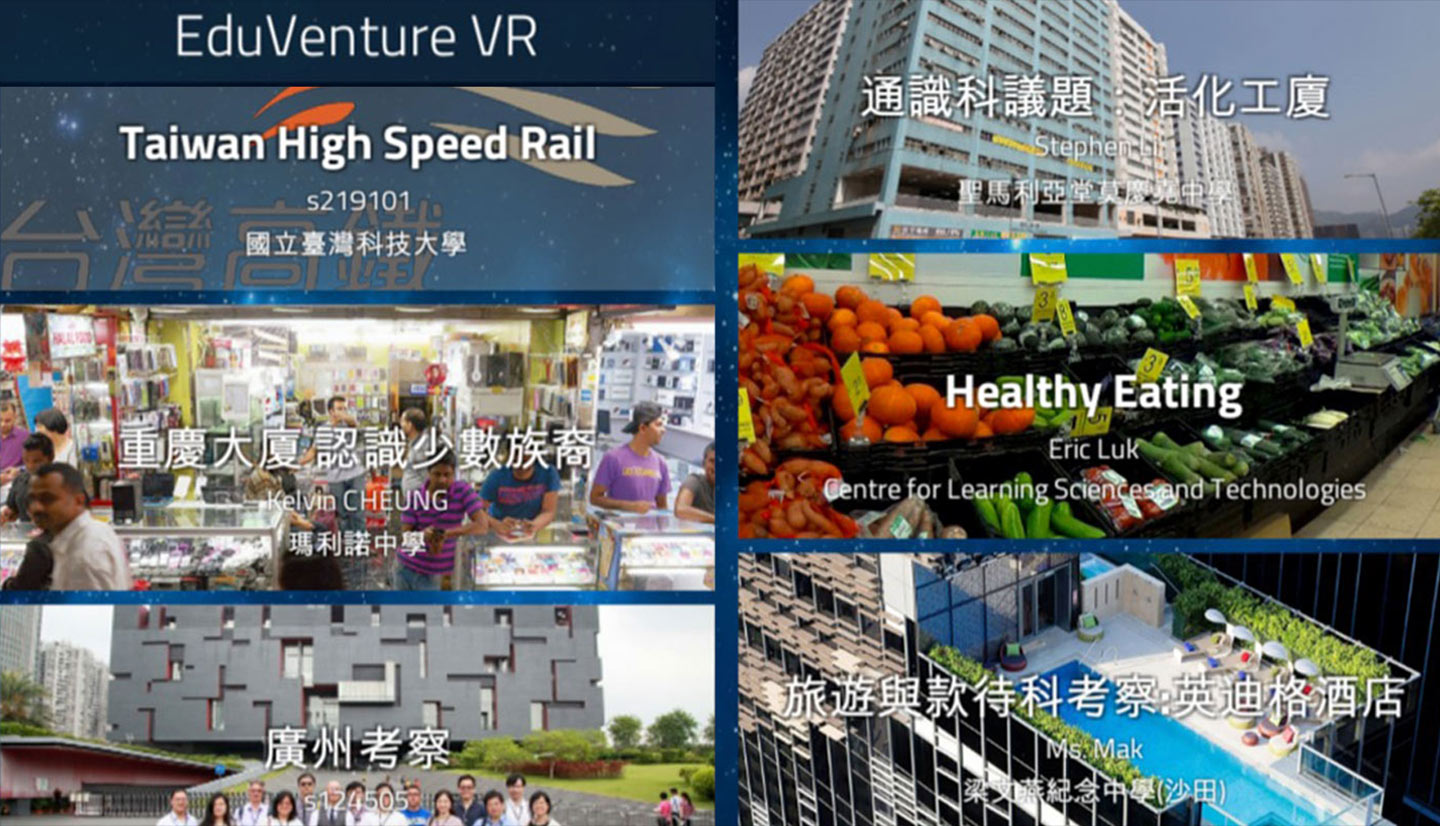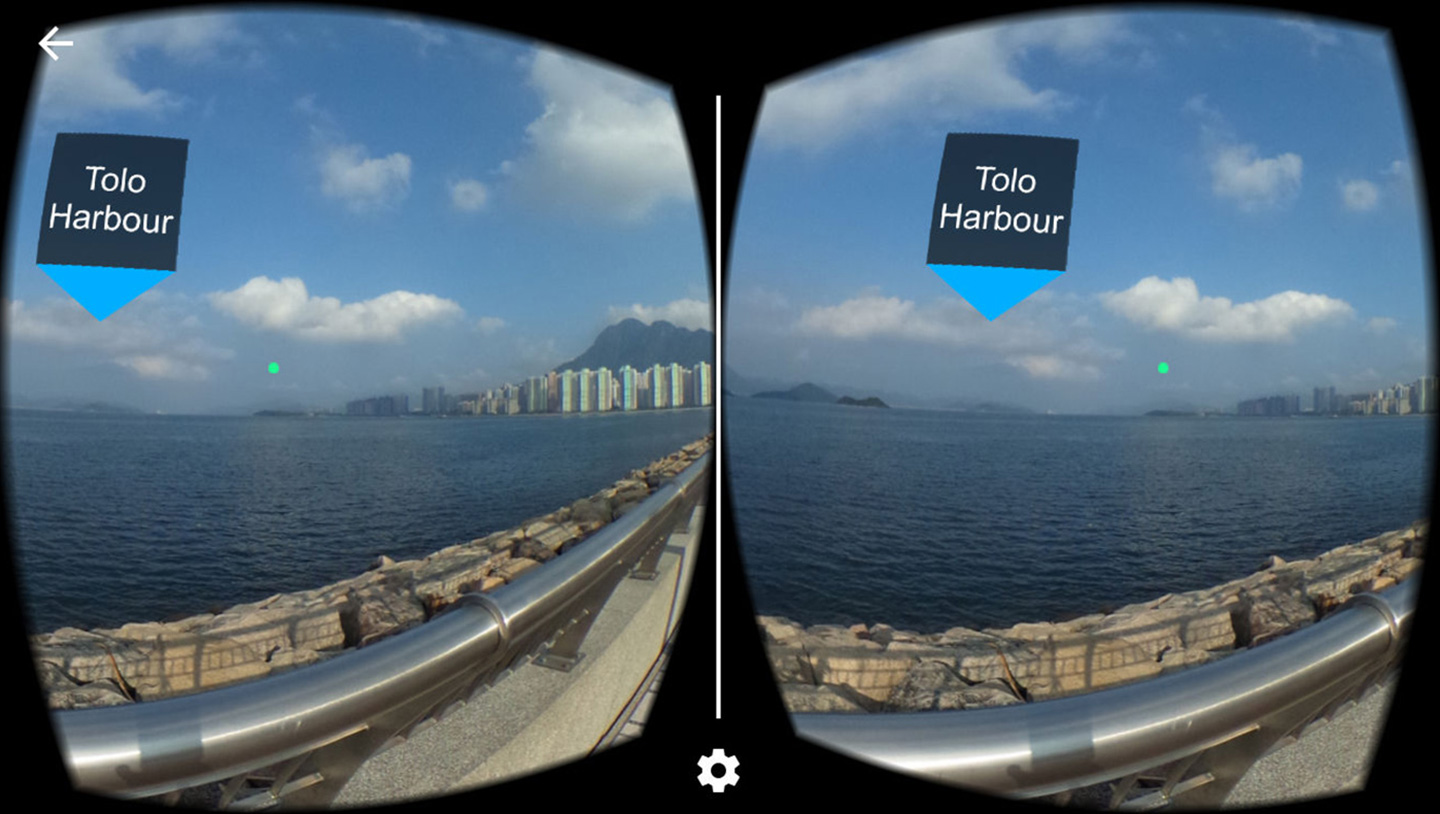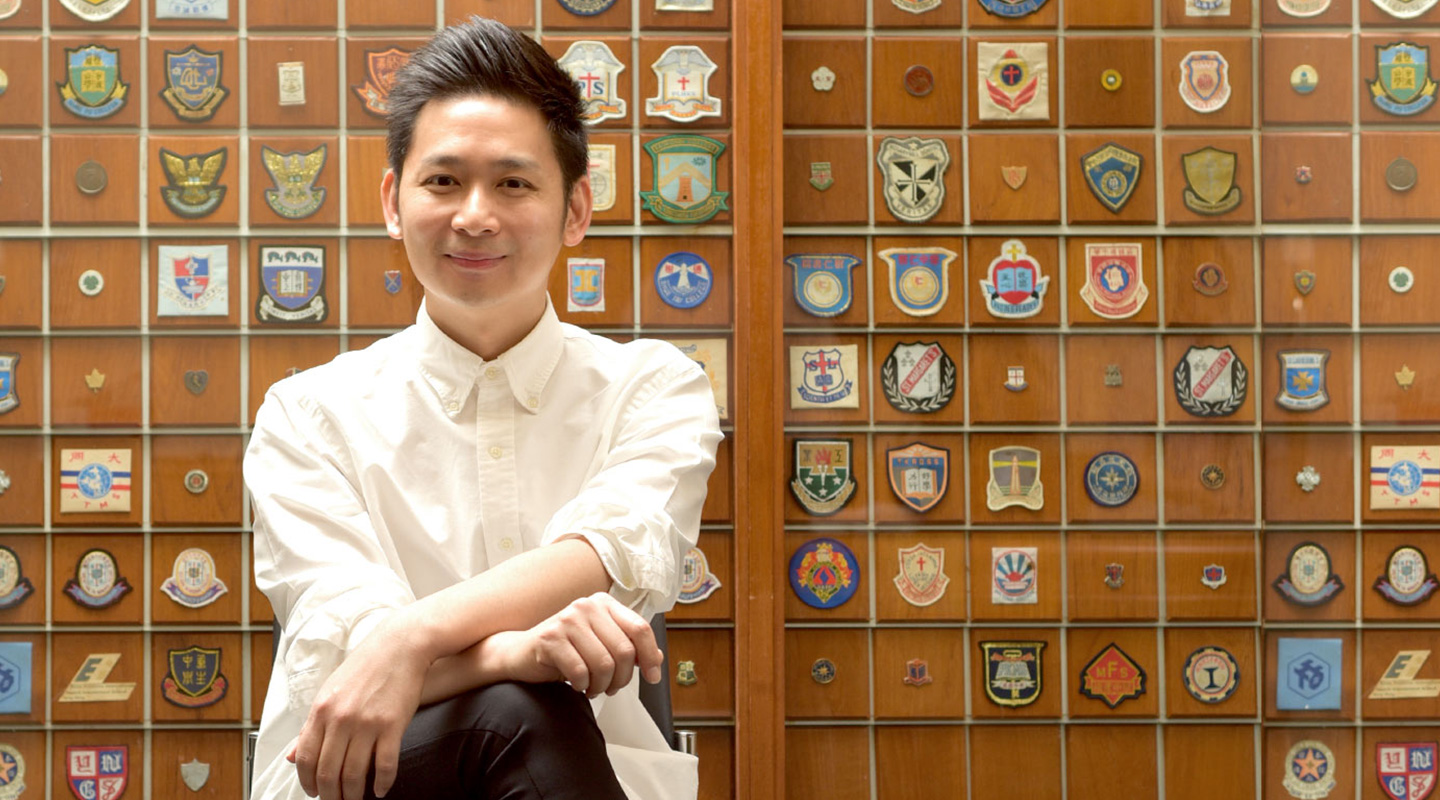Dear readers, With the launch of e-newsletter CUHK in Focus, CUHKUPDates has retired and this site will no longer be updated. To stay abreast of the University’s latest news, please go to https://focus.cuhk.edu.hk. Thank you.
Home Comforts in Field Trips
Morris Jong makes VR virtually educational

School trips sometimes don’t live up to their billing. An exciting excursion to put knowledge to use in a practical setting can devolve into an exercise in futility, too many students crowded around a half-broken exhibit, while the slackers sneak off in the back.
A mobile-learning initiative called EduVenture aims to change that, using online tools to improve the productivity of field trips. The use of mobile phones and e-learning captures the imagination of 21st century students more vividly, engaging them with tools they like to use.
‘In the old days, the teacher was like a tour guide,’ Prof. Morris Jong Siu-yung of the Department of Curriculum and Instruction in the Faculty of Education, who has spearheaded the initiative, says. ‘We have gamified learning, to make it more like a treasure hunt.’
For students, the system starts with EduVenture Explorer. It’s a mobile app run on a smartphone or tablet. Students see an electronic map of the real-life site, and pick their own avatar to explore it. They and the teacher can see the avatars of other students, and track them in real time.
The map contains pre-marked exploratory stops for the student to visit. On arriving at the physical point, the student taps on the pin that appears, unlocking an inquiry that asks for investigation of the real-world environment.
Teachers can use EduVenture Retriever to see the proceedings of the field trip while it is going on, including the progress of individual students. Students can access the stored results when they return to the classroom and analyze the trip. The teacher can prepare a targeted debriefing, based on what the students achieved, and where they struggled.
‘This can be a toy, or a very, very powerful education tool,’ Professor Jong says, holding up his smartphone.
On the back end, there is EduVenture Composer. It is a cloud-based system that teachers use to tailor-make a field trip – now a ‘digital outdoor-inquiry learning experience.’

EduVenture Composer allows teachers to develop their own e-learning content, and share it so that teacher peers can use it, and provide feedback. This, Professor Jong notes, makes teachers creators rather than simply consumers of e-learning materials. In the ‘sharing economy,’ teachers who are not as fluent with new technologies can draw from tech-savvy ones.
Teachers may be used to running the exact same field trip year after year due to the time and cost of preparing materials. The composer allows them to quickly customize their materials to their specific students. Outdoor worksheets that get ripped, wet and lost become a thing of the past since all the materials are online, in a device students won’t let go. Yet given the advance preparation, there’s also no sniggering as students who are digital natives watch as teachers fumble with technology.
A total of 498 schools and 2,682 teachers are now using EduVenture for field trips, in primary and secondary schools, as well as special schools. They have created an ‘information bank’ of 3,500 pieces of digital-learning material for use in outdoor learning.
Hong Kong’s Education Bureau supports EduVenture for field trips in general studies at primary level, as well as geography and liberal studies in secondary school. It’s also a useful tool for teacher training, as a way of learning more about both fieldwork and mobile learning.
The use of the system doesn’t stop at schools. Non-governmental organizations are using it at their locations, including the World Wildlife Fund Hong Kong and The Boys’ & Girls’ Clubs Association of Hong Kong. CUHK’s School of Life Sciences uses EduVenture in field trips for its bachelor’s degree programme in environmental science.

Professor Jong and his team tested EduVenture with trial field trips from across academic bands. The findings showed that students from high-, middle- and low-band schools ‘significantly outperformed’ control groups who went through a traditional field trip. Those using EduVenture are more motivated during the outing, and students who perform poorly in text tests show more ability when recording interviews or documenting what they’ve experienced with photographs.
The reflection back in the classroom requires traditional skills. ‘They still have to use their pens to write things, but we make them have photos and data to show in the report,’ Professor Jong notes. ‘They have to use their own words to express what they found, summarize it, do a presentation, and other students have to critique the students. So they still have the face-to-face component.’
In educational theory, to ‘remember,’ ‘understand’ and ‘apply’ information is lower-order thinking. ‘Nowadays we have to equip the students with ‘higher-order thinking,’ the ability to analyze, evaluate and create,’ Professor Jong says.
Some teachers resist e-learning. They may find it intimidating, or difficult to incorporate into existing teaching. Professor Jong has worked hard to make the system intuitive to use.
‘We have to pass through the educational innovation gatekeepers in schools,’ Professor Jong says. ‘They’re teachers, and we have to get their endorsement, so we have to provide a very user-friendly platform for teachers to use.’

Professor Jong earned a bachelor’s degree in engineering and a master’s in computer and information technology before getting an education doctorate. He has also been conducting professional-development workshops to explain the theory and practice of e-learning. Feedback from those sessions helps further refine EduVenture.
Professor Jong is also the director of the Centre for Learning Sciences and Technologies at CUHK. The centre analyzes how students learn, and the best methods and media that achieve that goal. The data collected by EduVenture trips is valuable to investigate what works, and does not.
A virtual-reality version of the system promises to supplement field trips with added ‘real-world’ remote visits – and is a last-ditch resort on days when the weather won’t cooperate. EduVenture VR is a cost- and time-effective way of expanding the curriculum, also allowing the exploration of inaccessible or dangerous spots. So far, 149 schools have tried the virtual-reality version.
The centre has been bolstered by HK$23.3 million (US$3 million) in funding from The Hong Kong Jockey Club Charities Trust to support the use of EduVenture VR in teaching the Chinese language, particularly writing skills. The plan is to provoke ‘scenario-based writing’ by exposing, for instance, students to images of autumn if they are to describe the season in Chinese. The technology can also take students on a virtual tour of parts of Hong Kong that feature prominently in Chinese literature, enhancing their sense of place in understanding great works by Hong Kong writers.
By Alex Frew McMillan
This article was originally published on CUHK Homepage in Apr 2019.